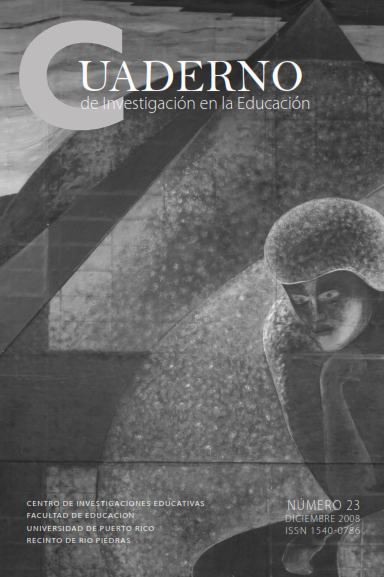Abstract
The purpose of this study is to identify what strategies preschool children use to self-regulate their emotions. It uses a qualitative methodology, in which the researcher employs participative observation in a classroom for a period of four months. A total of 65 preschool children between age three and four participated in this study. Among the self-regulation strategies used by children include: the contribution of friends who serve as a source of control in order to maintain or regain balance; cognitive processes, such as withdrawing from the situation, asking assistance from an adult, redirect their attention to other stimuli; the use of language to mediate solutions, and the use of sensory strategies before, during and after a stressful event. Another of the findings emphasizes the educator‘s role and the school environment that foster a sense of acceptance, love, respect, justice and trust.
How to cite:
Figueroa-Fuentes, W. I. (2008). Mis amigos y yo: Estrategias utilizadas por la niñez preescolar para autorregular sus emociones. Cuaderno de Investigación en la Educación, 23, 97-112. Retrieved from https://revistas.upr.edu/index.php/educacion/article/view/13309
The contents published in the Puerto Rico Journal of Education is freely distributed under open access practices, in accordance with the Creative Commons license, Attribution-NonCommercial 4.0 International (CC BY-NC 4.0). Through these principles, the journal and its authors allow readers to access, reproduce and share articles in full text. Users should give credit to authors in a reasonable way without suggesting they have their support. Under no circumstances, readers may make use of the contents for commercial purposes. The authors retain copyright on their works.

